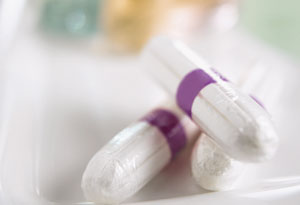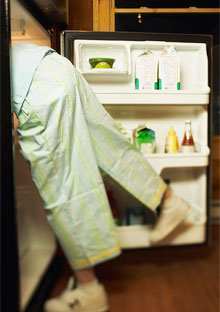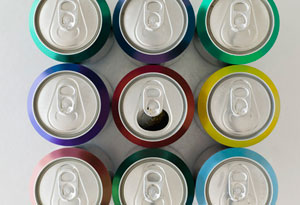
Photo: Thinkstock
30 years ago, it was hard to escape the headlines about toxic shock syndrome (TSS), after more than 800 women suddenly began experiencing unexplained rash, fever, and other symptoms—and 38 died. Today, though, TSS is extremely rare. And only half of all cases are associated with tampon use.
TSS begins with a bacterial infection (usually staph or strep), which causes toxins to be released into the bloodstream. Such infections can develop in the aftermath of surgery or a severe burn, but the 1980 cases were linked to the use of superabsorbent tampons. Choosing a tampon with more absorbency than you need can lead to excessive dryness or ulcerations in the vaginal lining—creating an opportunity for infection.The epidemic led to the formation of a CDC task force, which found that one brand of tampons—Rely, which was so absorbent that it could last an entire menstrual period without needing to be replaced—posed a higher risk of TSS than others. The brand was subsequently taken off the market.
In the past three decades, the number of TSS cases has decreased dramatically. For example, a study of women in Minnesota found only three out of 100,000 were diagnosed with TSS in 2003. That doesn't mean you should disregard the TSS warnings that still come inside every box of tampons: As directed, choose low-absorbency tampons whenever possible, and change them frequently.
Does eating late at night make you gain weight?

Photo: Jupiter images© 2010 Jupiterimages
Corporation
Corporation
We've all heard the warning: If you eat right before bed, you'll put on weight while you sleep. I used to live in Spain, where everyone eats dinner late, around 9 or 10 p.m., and I'm here to tell you that Spaniards do not carry around more weight than people who live in countries with earlier dinnertimes. To take another example, during Ramadan, Muslims fast during daylight hours and eat only after sunset. They make up for the daylight deprivations by celebrating with huge feasts of their favorite foods. Yet, a study at the Hashemite University in Jordan that monitored 57 Muslim women before and during Ramadan found that the women lost weight.
Researchers at the University of Texas at El Paso had 867 people keep diet diaries that divided the day into four-hour periods. It turned out that people who ate more in the morning ate fewer calories overall, and people who ate late at night ate more calories overall. This is the key. Typically, Americans who eat late at night are not simply postponing dinner from 6 to 10 P.M. They are actually eating more: snacking in front of the TV, eating junk food or adding calories with alcohol.
So it's not when you eat, it's how much you eat. The mystery of weight loss always boils down to this: If you burn more calories than you eat, you will lose weight; if you eat more calories than you burn, you will gain weight. You can't argue with physics.
Can soda de-calcify your bones?
Researchers at the University of Texas at El Paso had 867 people keep diet diaries that divided the day into four-hour periods. It turned out that people who ate more in the morning ate fewer calories overall, and people who ate late at night ate more calories overall. This is the key. Typically, Americans who eat late at night are not simply postponing dinner from 6 to 10 P.M. They are actually eating more: snacking in front of the TV, eating junk food or adding calories with alcohol.
So it's not when you eat, it's how much you eat. The mystery of weight loss always boils down to this: If you burn more calories than you eat, you will lose weight; if you eat more calories than you burn, you will gain weight. You can't argue with physics.
Can soda de-calcify your bones?

© 2010 Jupiterimages Corporation
Q: Does soda leach calcium from bones?
A: This common belief probably originated with studies that linked soft drinks to osteoporosis, like the 2006 Framingham Osteoporosis Study that compared bone density in 2,538 men and women with their self-reported intake of soda. Drinking more than three colas a week—but not other carbonated beverages—was associated with lower bone density in women, though not in men.
The scientists could not explain the difference between the sexes, but at first they suspected that the phosphoric acid in cola might be interfering with bone metabolism. After all, our bones are constantly being dissolved and reformed in a complex dance that involves calcium, phosphorus, vitamin D, and parathyroid hormone. But the phosphorus in cola is only a tiny fraction of what we get from the rest of our food; a cup of skim-milk yogurt has more than seven times the amount in a can of soda. So then the experts looked at the subjects' calcium intake. And they found that the women who consumed the most cola also consumed the least calcium.
Soft drinks tend to displace healthier foods from the diet. So it's not the soda itself but the diet as a whole that matters. An unhealthy diet with too much soda and not enough sources of calcium (like dairy, fish, and leafy greens) can weaken bones over time.
Harriet Hall, MD, is an editor of ScienceBasedMedicine.org.
Next: 10 things Dr. Oz knows for sure
A: This common belief probably originated with studies that linked soft drinks to osteoporosis, like the 2006 Framingham Osteoporosis Study that compared bone density in 2,538 men and women with their self-reported intake of soda. Drinking more than three colas a week—but not other carbonated beverages—was associated with lower bone density in women, though not in men.
The scientists could not explain the difference between the sexes, but at first they suspected that the phosphoric acid in cola might be interfering with bone metabolism. After all, our bones are constantly being dissolved and reformed in a complex dance that involves calcium, phosphorus, vitamin D, and parathyroid hormone. But the phosphorus in cola is only a tiny fraction of what we get from the rest of our food; a cup of skim-milk yogurt has more than seven times the amount in a can of soda. So then the experts looked at the subjects' calcium intake. And they found that the women who consumed the most cola also consumed the least calcium.
Soft drinks tend to displace healthier foods from the diet. So it's not the soda itself but the diet as a whole that matters. An unhealthy diet with too much soda and not enough sources of calcium (like dairy, fish, and leafy greens) can weaken bones over time.
Harriet Hall, MD, is an editor of ScienceBasedMedicine.org.
Next: 10 things Dr. Oz knows for sure
As a reminder, always consult your doctor for medical advice and treatment before starting any program.




